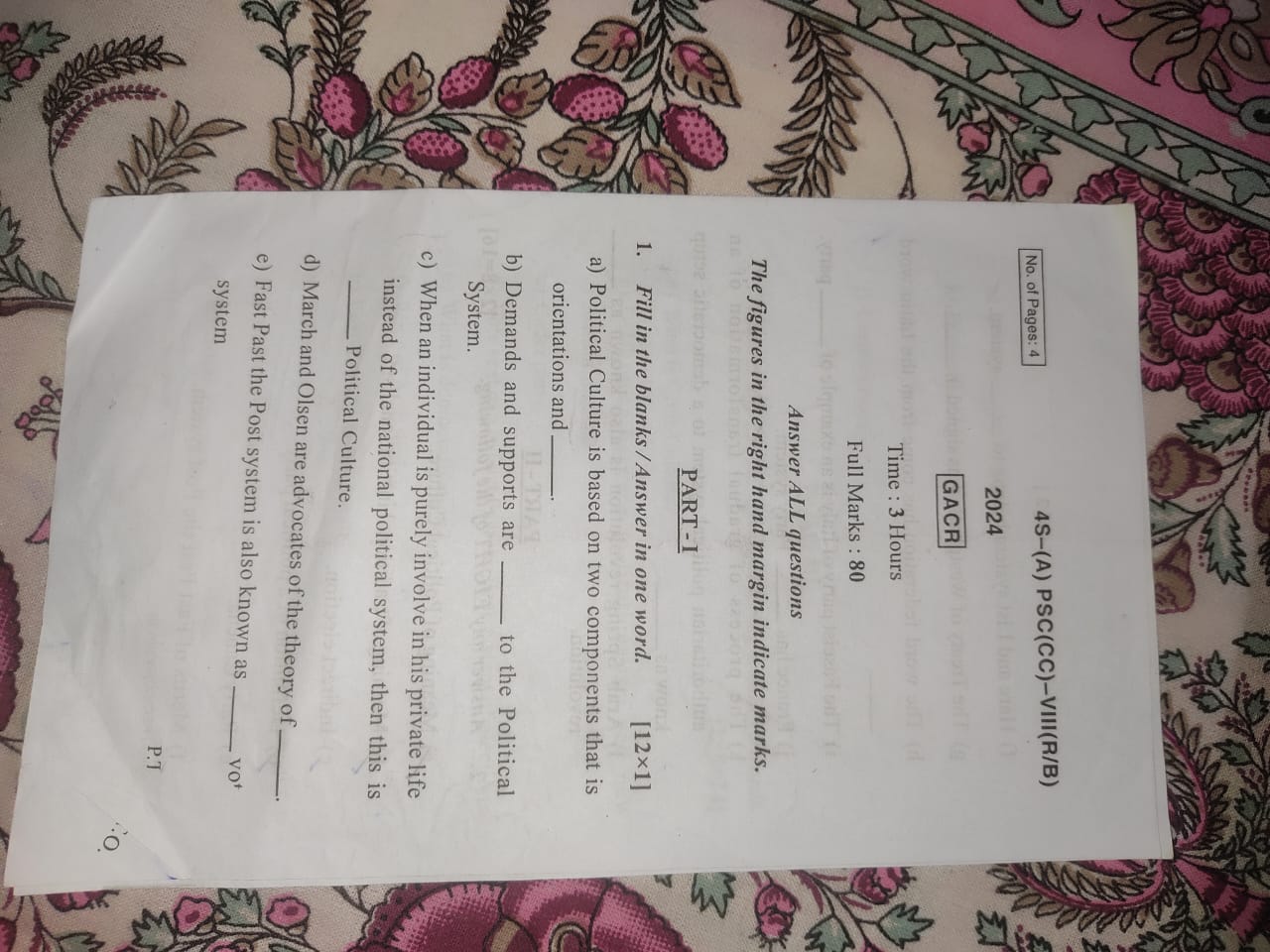Fill in the blanks; give one word. [12×1] (a) Political Culture is based on two components that is _____ and _____ to the Political System. (b) Demands and supports are _____ to th... Fill in the blanks; give one word. [12×1] (a) Political Culture is based on two components that is _____ and _____ to the Political System. (b) Demands and supports are _____ to the Political System. (c) When an individual is purely involved in his private life instead of the national political system, then this is _____ Political Culture. (d) March and Olsen are advocates of the theory of _____ system. (e) Past the Post system is also known as _____

Understand the Problem
The question is asking to fill in the blanks related to the topic of Political Culture. It involves understanding key concepts and their applications within political systems.
Answer
(a) orientations, attachments; (b) inputs; (c) parochial; (d) institutional; (e) first-past-the-post.
The final answer is (a) orientations, attachments; (b) inputs; (c) parochial; (d) institutional; (e) first-past-the-post.
Answer for screen readers
The final answer is (a) orientations, attachments; (b) inputs; (c) parochial; (d) institutional; (e) first-past-the-post.
More Information
Political culture often involves shared orientations and attachments. Demands and supports are considered inputs in political systems theory. Parochial political culture refers to limited awareness or participation. March and Olsen are known for the 'institutional' theory. 'First-past-the-post' is another term for the plurality voting system.
Tips
A common mistake is confusing 'parochial' with other types of political culture like 'participatory.'
Sources
- Political culture - Wikipedia - en.wikipedia.org
AI-generated content may contain errors. Please verify critical information